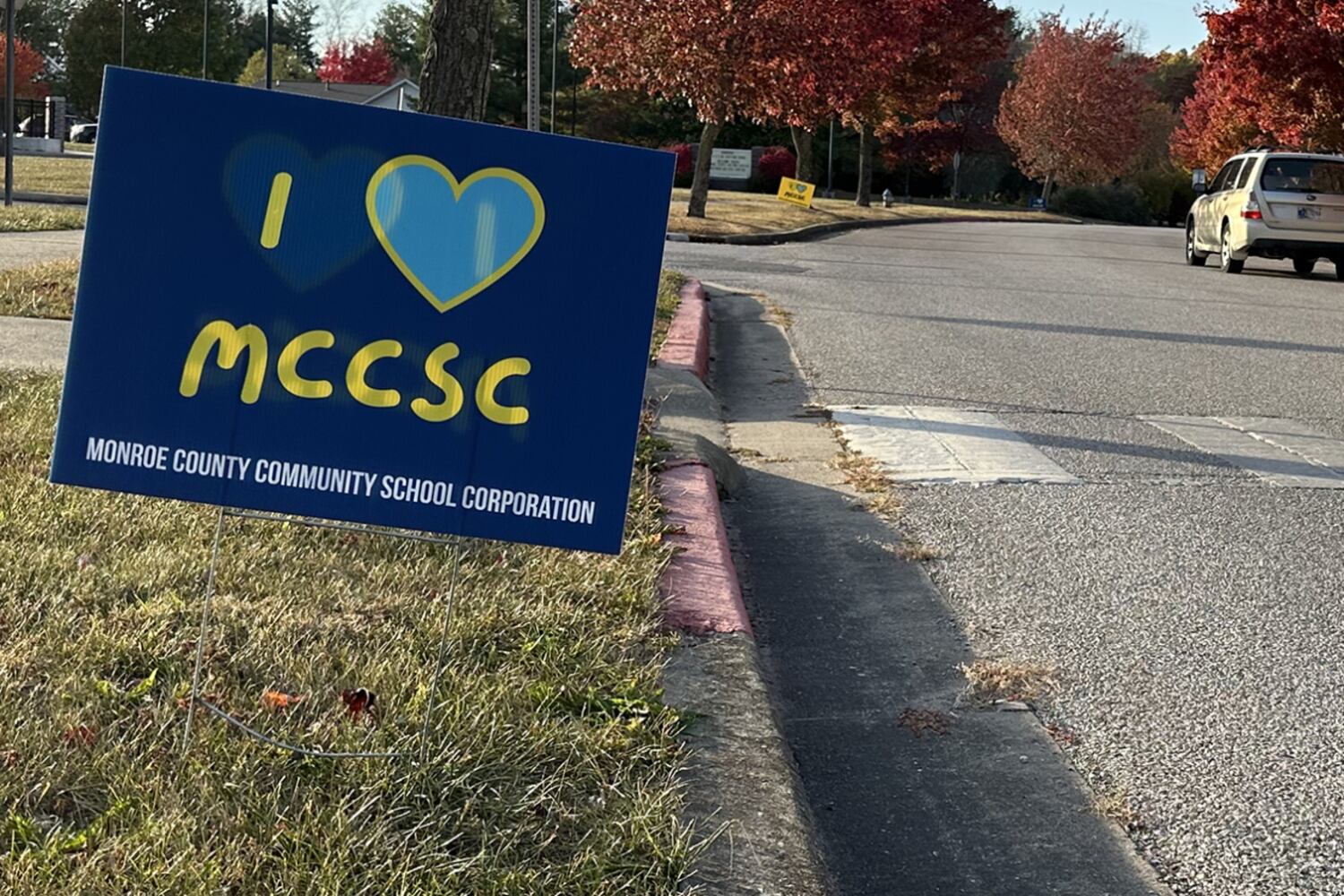This article was co-published by Chalkbeat Indiana and WFYI as part of a collaboration for the 2022 school board elections.
Four of the eight Indiana school districts with ballot questions to approve property tax levies failed to receive voter approval Tuesday in the midterm election.
Leaders at Brown County Schools, Delphi Community School Corp. in Carroll County, Medora Community School Corp. in Jackson County, and MSD of Wabash County could not convince their communities to support the extra cost to property bills.
Three of the rural districts warned of staffing and programs cuts, and an increase of students in classrooms if the funding was not approved. Brown County Superintendent Emily Tracy has also said salaries and wages would be frozen across the district.
MSD of Wabash County Schools asked voters for $115 million in new property-taxes as part of a plan to construct a new 165,000-square-foot high school and renovate other buildings. The referendum was rejected by 78 precent of voters.
Prior to the election, education leaders and advocates also expressed concern that new language required on the ballot could give voters the wrong idea of how much property tax they could face. Last year, a law was enacted that requires the ballot question to include the estimated average percentage of property tax increase paid to the school district if the levy is approved.
On Wednesday, Brown County’s Tracy said the outcome of the $15.1 million referendum was disheartening and thinks voters may not have understood the ballot language. The operations referendum failed, with 52.9% voting “no.”
“It was an extremely close vote and we appreciate everyone who came out to support our educators,” Tracy said in a statement. “I believe the language on the ballot is confusing and misleading for voters and it is our effort to continue to educate and inform our community.”
The district has one year remaining on a current operating referendum before it expires.
“We will get back out there and do what we need to do moving forward,” she said.
Officials at Westfield Washington Schools told voters before the election that the language required on their ballot question to raise $61 million was “very misleading.” The measure passed easily with 67% of the vote.
Superintendent Paul Kaiser, in a statement to WFYI, thanked the community for “overwhelming numbers” of support.
“This result tells us that our community believes in our staff and most importantly, their kids,” Kaiser said in the statement, adding school leaders are happy they won’t need another campaign for eight years.
“... and we’re ready to continue providing our students and our community with the high-quality educational experience that they have come to expect and deserve,” he said.
Here are unofficial results reported by county election offices:
Wabash County School Corp. – FAILED: 78.1% voted “no” on an capital referendum for property tax rate of $0.8300 cents per $100 of assessed value for eight years. The estimated total tax amount levy would have funded a $115,000,000 construction and renovation project.
Brown County Schools, Brown County – FAILED: 52.9% voted “no” on an operations referendum for property tax rate of $0.1200 per $100 of assessed value for eight years. The estimated total tax amount levy would have raised: $15,140,096
Delphi Community School Corp., Carroll County – FAILED: 55% voted “no” on an operations referendum for property tax rate of $0.2032 per $100 of assessed value for eight years. The estimated total tax amount levy would have raised: $9,598,120
Medora Community School Corp., Jackson County – FAILED: 74.49% voted “no” on operations referendum for property tax rate of $0.50 per $100 of assessed value for eight years. The estimated total tax amount levy would have raised: $1,554,000
Monroe County Community School Corp., Monroe County – PASSED: 67% voted “yes” on an operations referendum for property tax rate of $0.1850 per $100 of assessed value for eight years. The estimated total tax amount to be raised: $139,017,904
MSD of Southwest Allen County, Allen County – PASSED: 69.1% voted “yes” on an operations referendum for property tax rate of $0.15 per $100 of assessed value for eight years. The estimated total tax amount to be raised: $51,245,496.
Southern Wells Community Schools, Wells County – PASSED: 71% voted “yes” on an operations referendum for property tax rate of $0.127 per $100 of assessed value for eight years. The estimated total tax amount to be raised: $4,241,584.
Westfield Washington Schools, Hamilton County – PASSED: 67.76% voted “yes” on an operations referendum for property tax rate of $0.17 per $100 of assessed value for eight years. The estimated total tax amount to be raised: $61,038,144.00.
Correction: A previous version of this story incorrectly described the impact of MSD of Wabash County not passing its referendum.
Contact WFYI education editor Eric Weddle at eweddle@wfyi.org or call (317) 614-0470. Follow on Twitter: @ericweddle.





